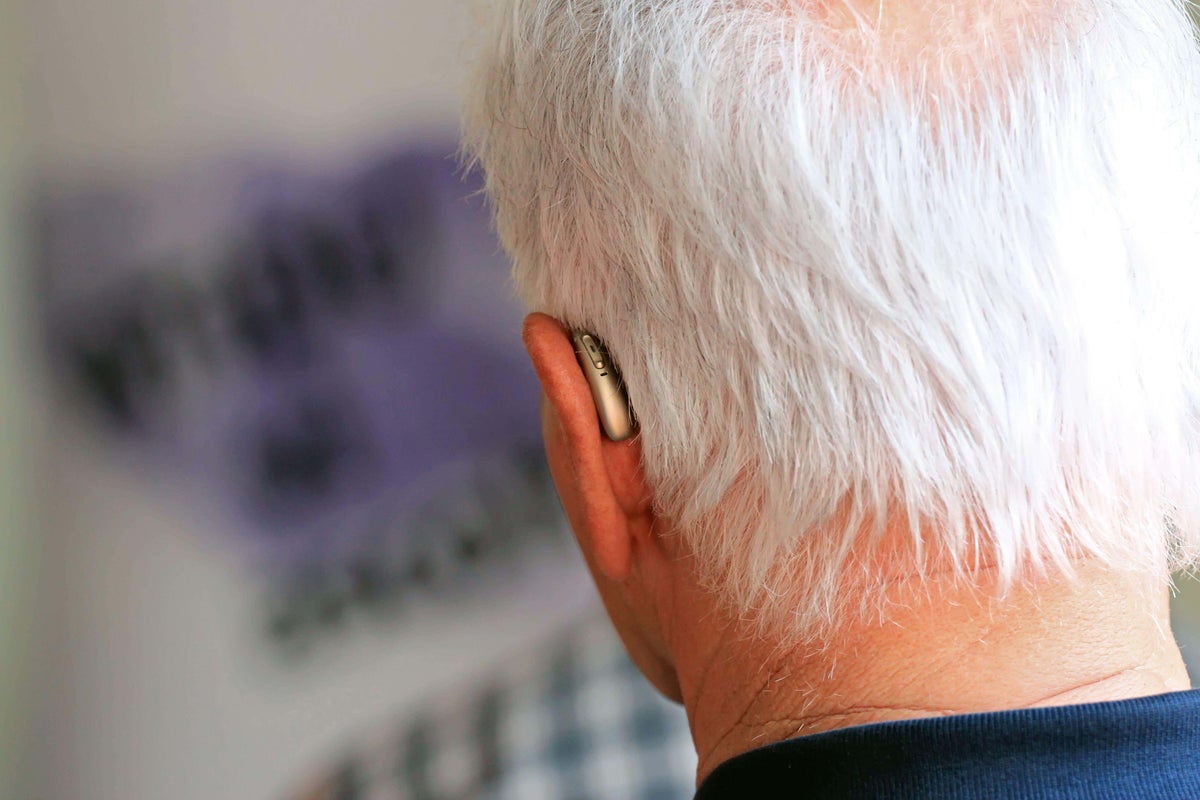
A cell therapy to improve hearing could transform the lives of millions of people with hearing loss, new research suggests.
The therapy will see the first clinical trial of a stem cell treatment for hearing loss, building on research that resulted in 40% improved hearing in preclinical tests.
Sheffield-based biotech company Rinri Therapeutics hopes to start clinical trials in the next two years in people with severe-to-profound age-related hearing loss.
A biological solution that can restore hearing significantly would be transformative to people with hearing loss, and we look forward to taking the next step by starting clinical trials in 2025— Professor Marcelo Rivolta, University of Sheffield
According to hearing loss charity RNID, hearing loss affects 12 million people in the UK, and increases as people get older, affecting more than 40% of over-50s and rising to 70% of over-70s.
People with hearing loss can face communication barriers, and are less likely to be employed than the general population.
They are twice as likely to experience mental health problems, including depression, and can be up to five times more likely to develop dementia, the RNID says.
It is thought that some 1.2 million adults in the UK have hearing loss severe enough that they would not be able to hear most conversational speech.
Jennifer Macintosh, 73, from Brighton, who has hearing loss, said: “A treatment for hearing loss would make a great difference because (with) no more hearing aids, I’d be able to take part in larger family gatherings, to take part in more social activities. When I’m in gym classes I would be able to join in the laughter and banter, instead of just standing there wishing I could.
“To start at the beginning of an exercise instead of one movement behind because you copy what is happening, to be able to go to any restaurant without worrying about noise, hear a theatre production without it being hit and miss…
“Also, perhaps more importantly, hear with clarity when you have medical appointments and dental treatment what is going on.”
Rinri’s work was founded on pioneering research into regenerative cell therapy, led by Professor Marcelo Rivolta at the University of Sheffield.
He said: “It is well recognised that hearing loss significantly impacts quality of life, affecting one in five adults in the UK.
“A biological solution that can restore hearing significantly would be transformative to people with hearing loss, and we look forward to taking the next step by starting clinical trials in 2025.”
Rinri’s cell therapy, Rincell-1, is for patients with auditory neuropathy, a form of hearing loss which occurs when sounds become disrupted as they travel to the brain.
The company says patients with auditory neuropathy make up 25% of the sensorineural hearing loss community.
Patients will receive Rincell-1, which regenerates auditory neurons and re-establishes the transmission of nerve signals from the inner ear to the auditory centres of the brain to reverse hearing loss.
If clinical trials are successful, the treatment could be available as a treatment to people with hearing loss within the next five to 10 years.
To measure if the therapy is effective, the treatment will be administered with cochlear implants – devices designed to bypass damaged hair cells and directly stimulate auditory neurons.
The implants can act as a recording sensor to pick up signals made by the cochlea as it passes sound information to the auditory nerve, so this will allow researchers to record objective measures of cochlear health, rather than only relying on subjective measures like speech recognition.
Dr Ralph Holme, director of research and insight at RNID, said: “RNID and our supporters are really excited about Rinri’s work, which could result in a life-changing treatment for millions of people with age-related hearing loss caused by damage to the auditory nerve.
“Whilst devices like hearing aids and cochlear implants can be hugely beneficial to people with hearing loss, they are not a complete solution and people still face significant barriers in their daily lives.
“For years, people with hearing loss have dreamed of a future where treatments to restore hearing will be available, and so it’s exciting to see therapies like this which could offer hope to so many approaching clinical trials.”







